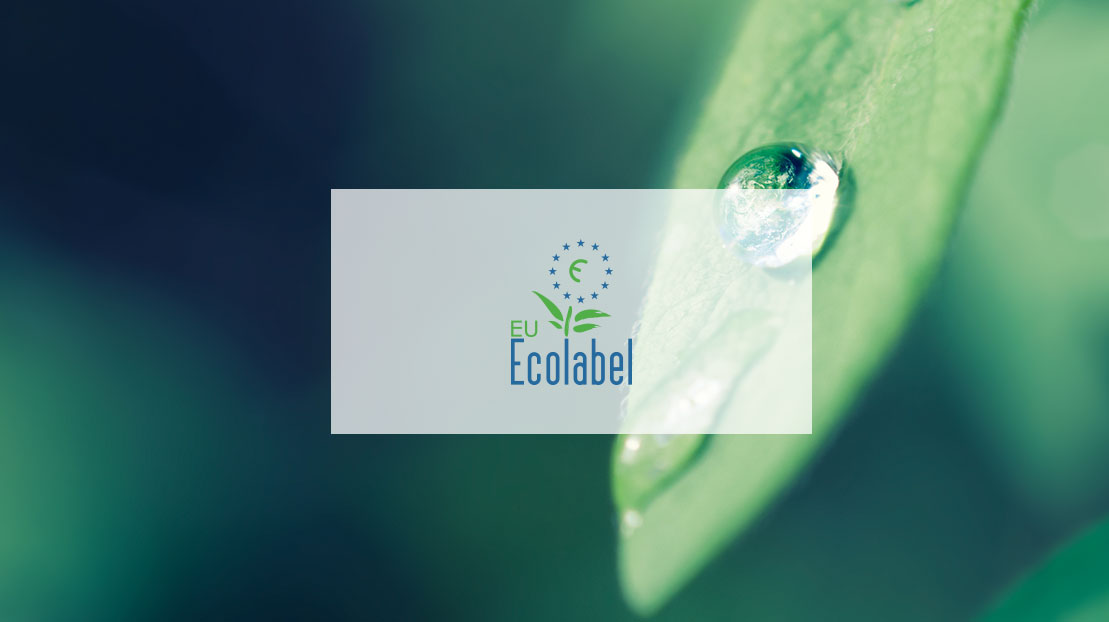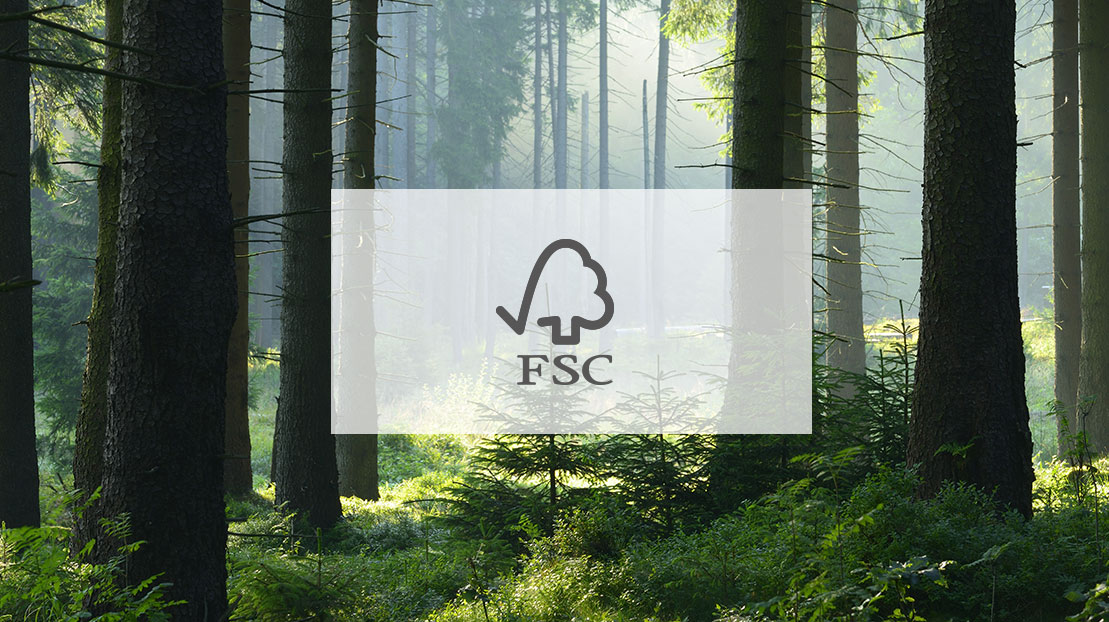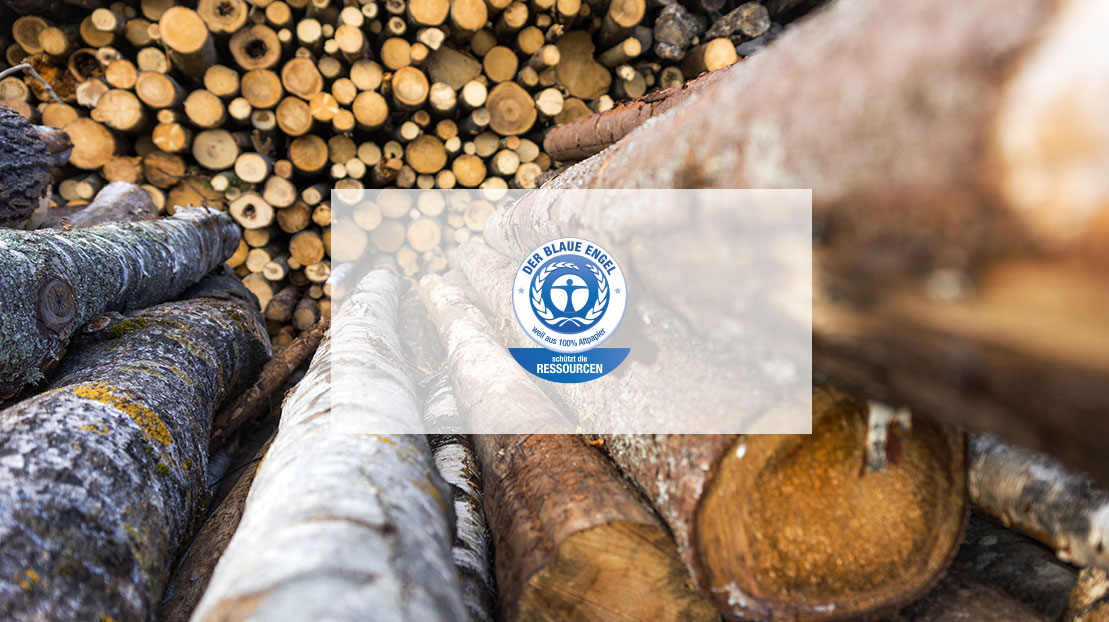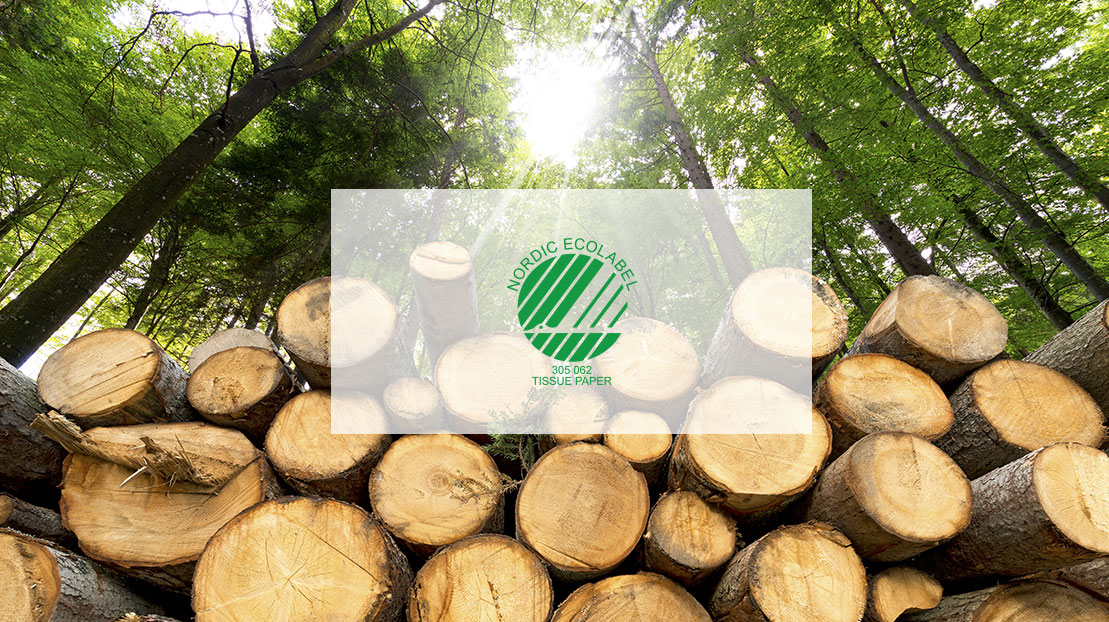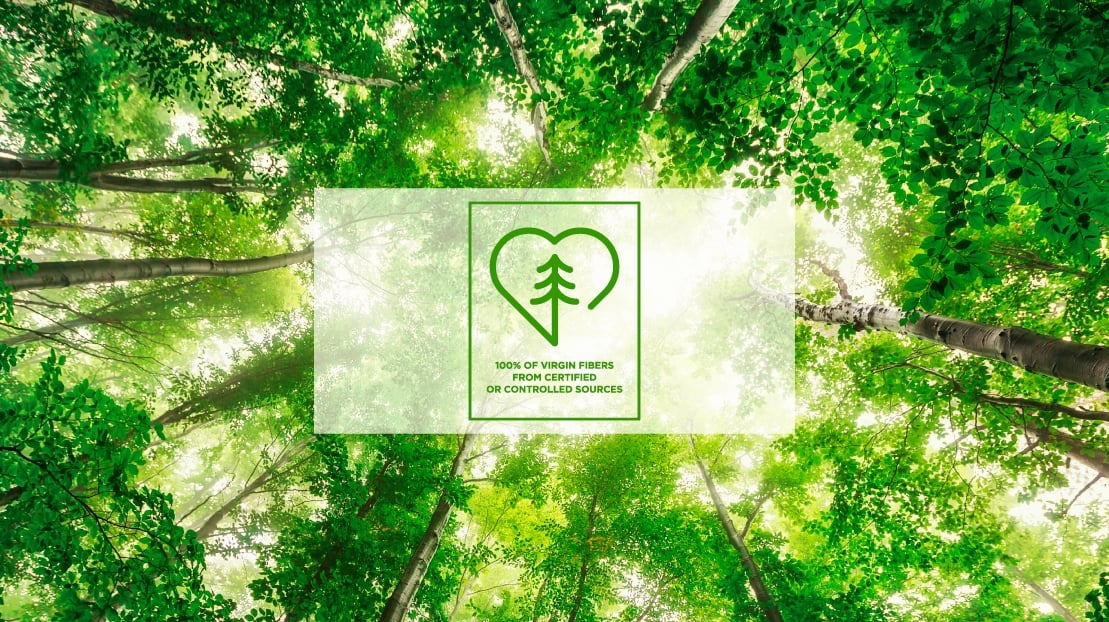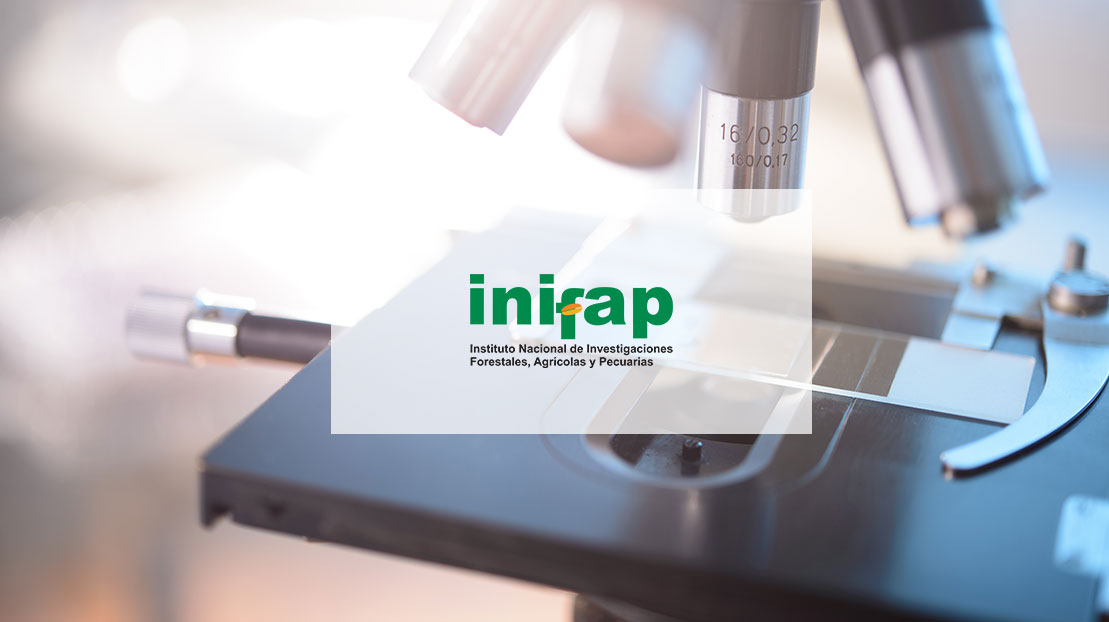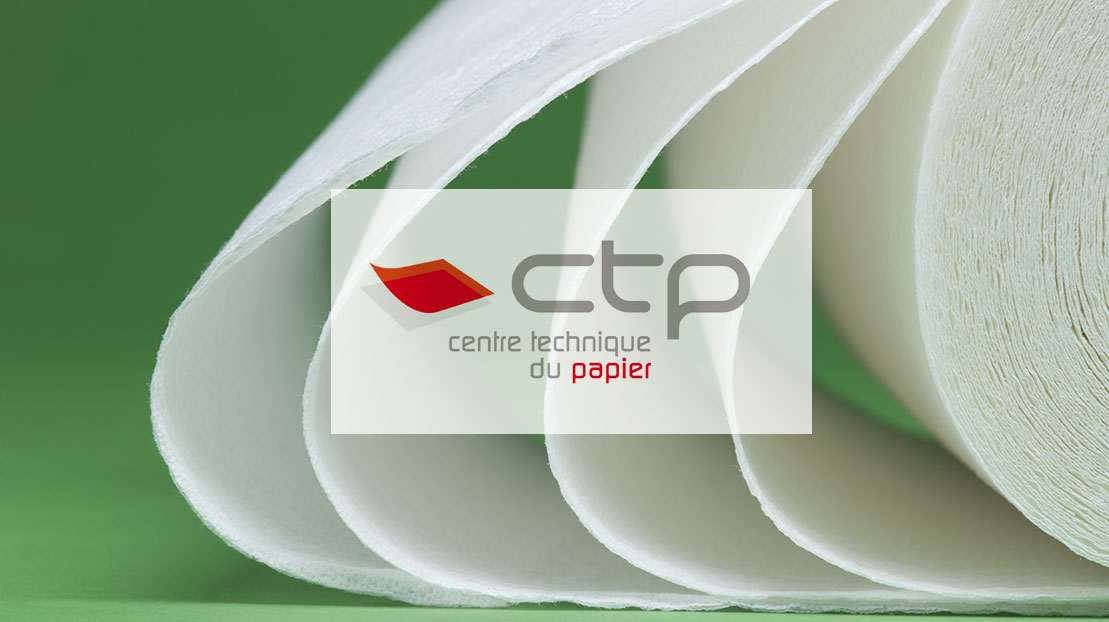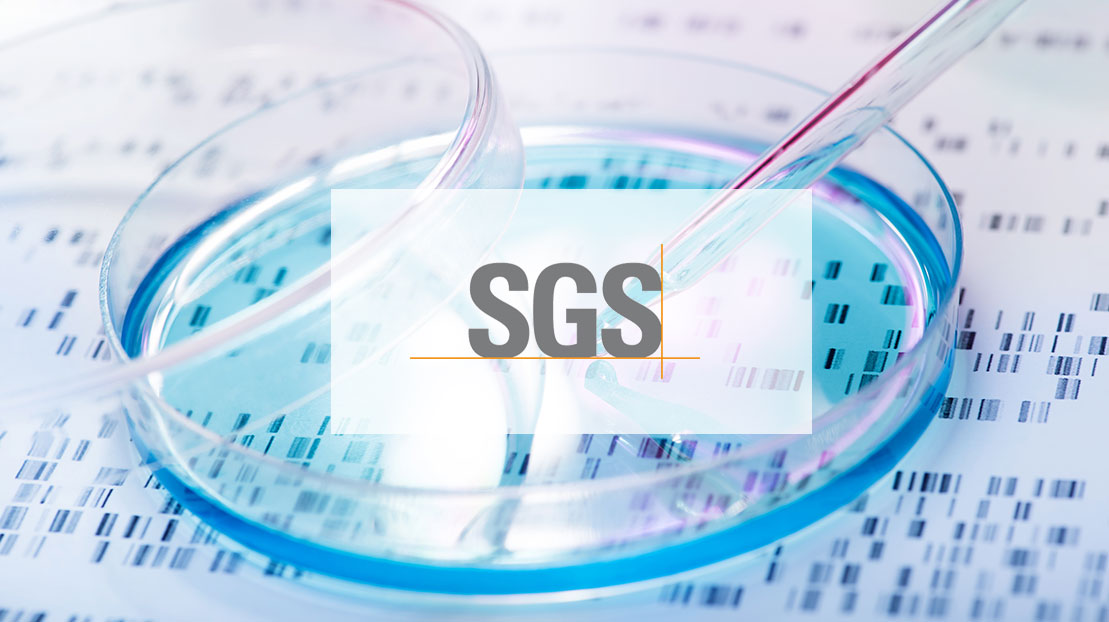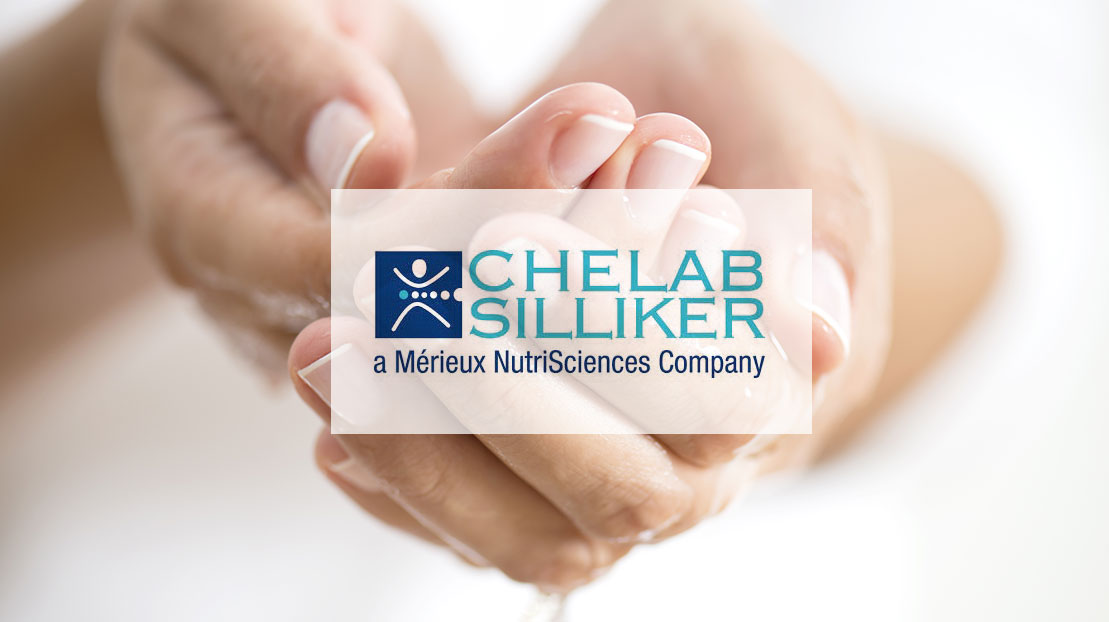Certifications
This section contains details on Papernet’s strong commitment to innovation and sustainability in its products.


Certifications
This section contains details on Papernet’s strong commitment to innovation and sustainability in its products.
EU Ecolabel or EU Flower
Ecolabel is the voluntary Type III ecological label recognised on a European level. It is a stylised daisy with the “E” of Europe at its centre, surrounded by stars representing the Member States. It was created by the European Commission in 1992 as a quality label awarded to product and service categories respecting precise ecological criteria. In particular, it indicates that the product guarantees a reduced environmental impact at every phase of its life cycle. For every product, the environmental aspects connected to its production are taken into consideration: the quality of the air, the water and the soil, waste production, resource and energy consumption, noise pollution, protection of the biodiversity. According to the principle of shared environmental management, the new Ecolabel Regulation 2010 establishes that the criteria adopted by the Commission are proposed by an Ecological Label Committee (CUEME) that sees the participation of all interested parties: Industry and SMEs, Consumer Associations, Environmental Associations. And the attention placed on the entire life cycle allows reducing the overall environmental impact, preventing the mere transfer of impacts from one phase to another. Through the Ecolabel, the consumer has access to reliable and scientifically based information on the products’ environmental impact. Additionally, Ecolabel products guarantee effective product quality. ec.europa.eu
Forest Stewardship Council
It is the certification system for forests, wood and derived products that ensures that the products come from forests managed pursuant to strict environmental, social and economic standards. The Forest Stewardship Council is the non-profit organization born in Mexico in 1994 and transferred to Bonn in 2003 that issues the certification necessary in order to be able to use the label on the basis of audits performed on the forests where the wood is extracted and in the course of all subsequent production phases, down to the consumer, and that concern environmental and social-ethical aspects. It is a label similar to Type I for the existence of a third certification body. The FSC forest management principles can be summarized in ten points: Principle#1. Compliance with lawsThe Organization shall comply with all applicable laws, regulations and nationally-ratified international treaties, conventions and agreements. Principle#2. Workers’ rights and employment conditionsThe Organization shall maintain or enhance the social and economic well-being of workers. Principle#3. Indigenous peoples’ rightsThe Organization shall identify and uphold indigenous peoples’ legal and customary rights of ownership, use and management of land, territories and resources affected by management activities. Principle#4. Community relationsThe Organization shall contribute to maintaining or enhancing the social and economic well-being of local communities. Principle#5. Benefits from the forestThe Organization shall efficiently manage the range of multiple products and services of the Management Unit to maintain or enhance long term economic viability and the range of environmental and social benefits. Principle#6. Environmental values and impactThe Organization shall maintain, conserve and/or restore ecosystem services and environmental values of the Management Unit, and shall avoid, repair or mitigate negative environmental impacts. Principle#7. Management planningThe Organization shall have a management plan consistent with its policies and objectives and proportionate to scale, intensity and risks of its management activities. The management plan shall be implemented and kept up to date based on monitoring information in order to promote adaptive management. The associated planning and procedural documentation shall be sufficient to guide staff, inform affected stakeholders and interested stakeholders and to justify management decisions. Principle#8. Monitoring and assessmentThe Organization shall demonstrate that progress towards achieving the management objectives, the impacts of management activities and the condition of the Management Unit, are monitored and evaluated proportionate to the scale, intensity and risk of management activities, in order to implement adaptive management. Principle#9. High conservation valuesThe Organization shall maintain and/or enhance the high conservation values in the Management Unit through applying the precauiotnary approach. Principle#10. Implementation of management activitiesManagement activities conducted by or for the Organization for the Management Unit shall be selected and implemented consistent with the Organization’s economic, environmental and social policies and objectives, and in compliance with the Principles and Criteria collectively. www.fsc.org
Blue Angel
Blue Angel products meet a list of criteria considering environmental and health-related aspects. The purchase of a Blue Angel-labelled product is a guarantee of good products with less environmental impact and greater health protection than many other products serving the same purpose. The main criteria for Tissue Paper is that the raw materials is made by 100% recovered paper (Recycled); in fact, Blue Angel suggests that a paper product made from 100% recycled paper saves the entire raw material required for virgin fibre paper production. Such action does not only contribute to a reduction of the volume of waste but also helps to conserve wood resources. www.blauer-engel.de
The Nordic Ecolabel
The Nordic Ecolabel is a voluntary, positive ecolabelling of products and services with a common Nordic registered trademark, the Nordic Ecolabel. Its purpose is to give consumers a clear and concise environmental product information, as well as promoting the development of products that are environmentally sound. The Nordic Ecolabel vision is a sustainable society and the mission is to contribute to a sustainable consumerism. The Nordic Ecolabel adopts criteria for the use of chemicals, the amounts of air and water pollution to make the products, as well as energy usage and waste procedures. The Nordic Ecolabel is the official ecolabel for the Nordic countries and the EU Ecolabel is its EU equivalent. Both systems work in similar ways with a lifecycle perspective and continually review criteria. They are often synchronized. www.nordic-ecolabel.org
100% of virgin fibers from certified or controlled sources
Sofidel has reached an important goal: 100% of the pure cellulose fibres purchased by the Group come from certified or controlled sources. For this reason, we have decided to communicate our commitment by adding a special icon to the packaging of all our products made of virgin cellulose fibre.
Inifap
In 2016, Bio Tech has received the certification that the microbiological activity and enzyme activity is beneficial to humans and the environment by the INIFAP Institute – Instituto Nacional de Investigaciones Forestales, Agricolas y Pecuarias. In particular, the certification attests that in the presence of spores of BATP, the bacteria, among which the one of Salmonella, do not develop. INIFAP is an institute of scientific and technological excellence with international recognition for its responsiveness to the needs of knowledge and technological innovation, located in Jalisco – Mexico.
Centre Technique du Papier
The Centre Technique du Papier in Grenoble, in September 2014, proved the dissolvability of Dissolve Tech paper after 3 minutes of contact with water. The Centre Technique du Papier in Grenoble is an industrial research and development organisation that provides scientific support to the paper industry.
SGS
In 2013 Bio Tech received certification by the prestigious SGS Institut Fresenius, Taunusstein (Germany) regarding the beneficial enzyme activity of BATP spores. SGS is the world’s leading inspection, verification, testing and certification company in Germany. SGS
Chelab Silliker
Bio Tech, in 2012, received the Chelab BATP certification as dermatologically tested product. Chelab Silliker, part of the Mérieux NutriSciences Corporation, boasts a proven expertise in analytical services in chemistry, microbiology and biology with a high technical and scientific specialisation.
- 1
- 2

